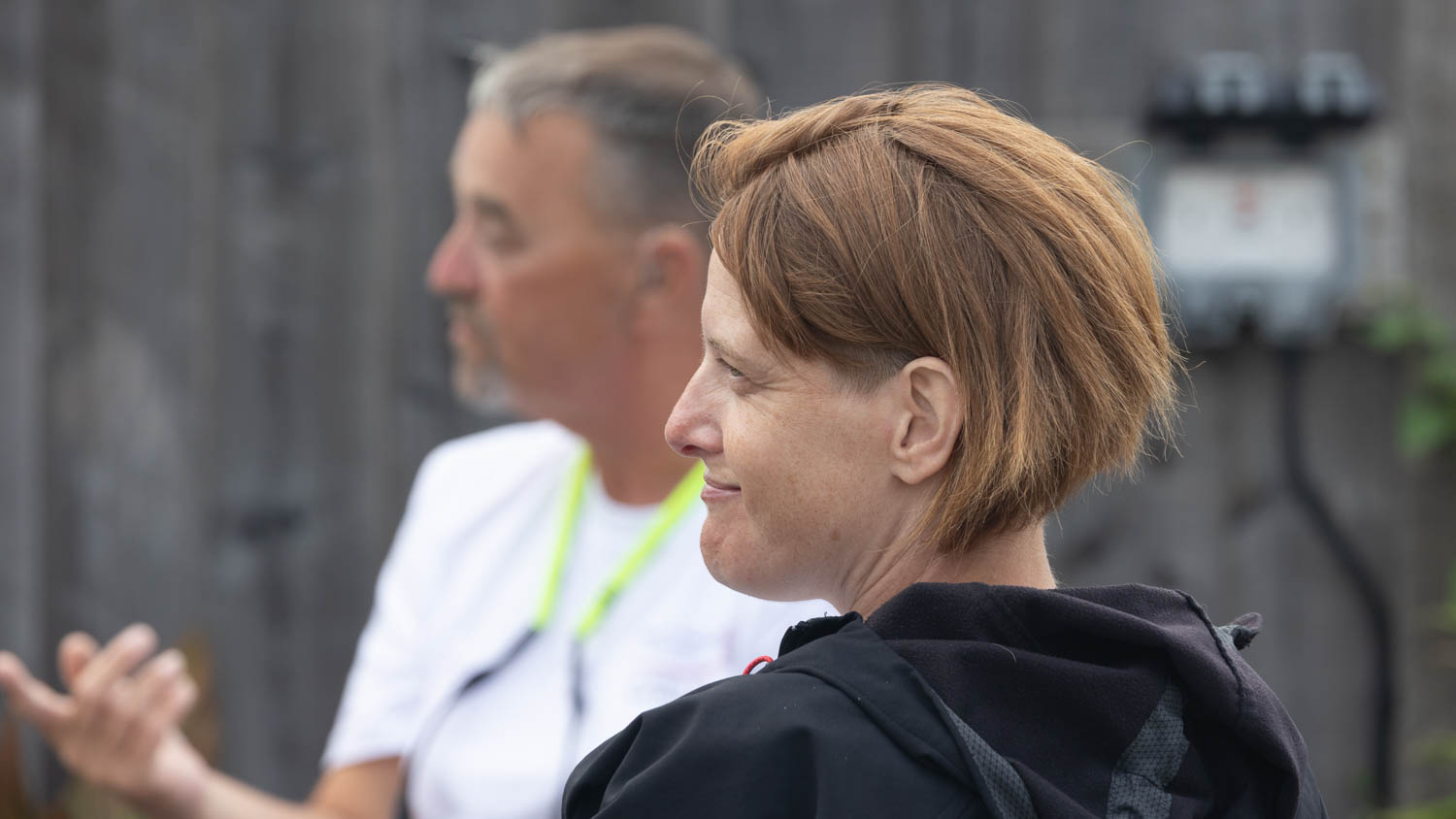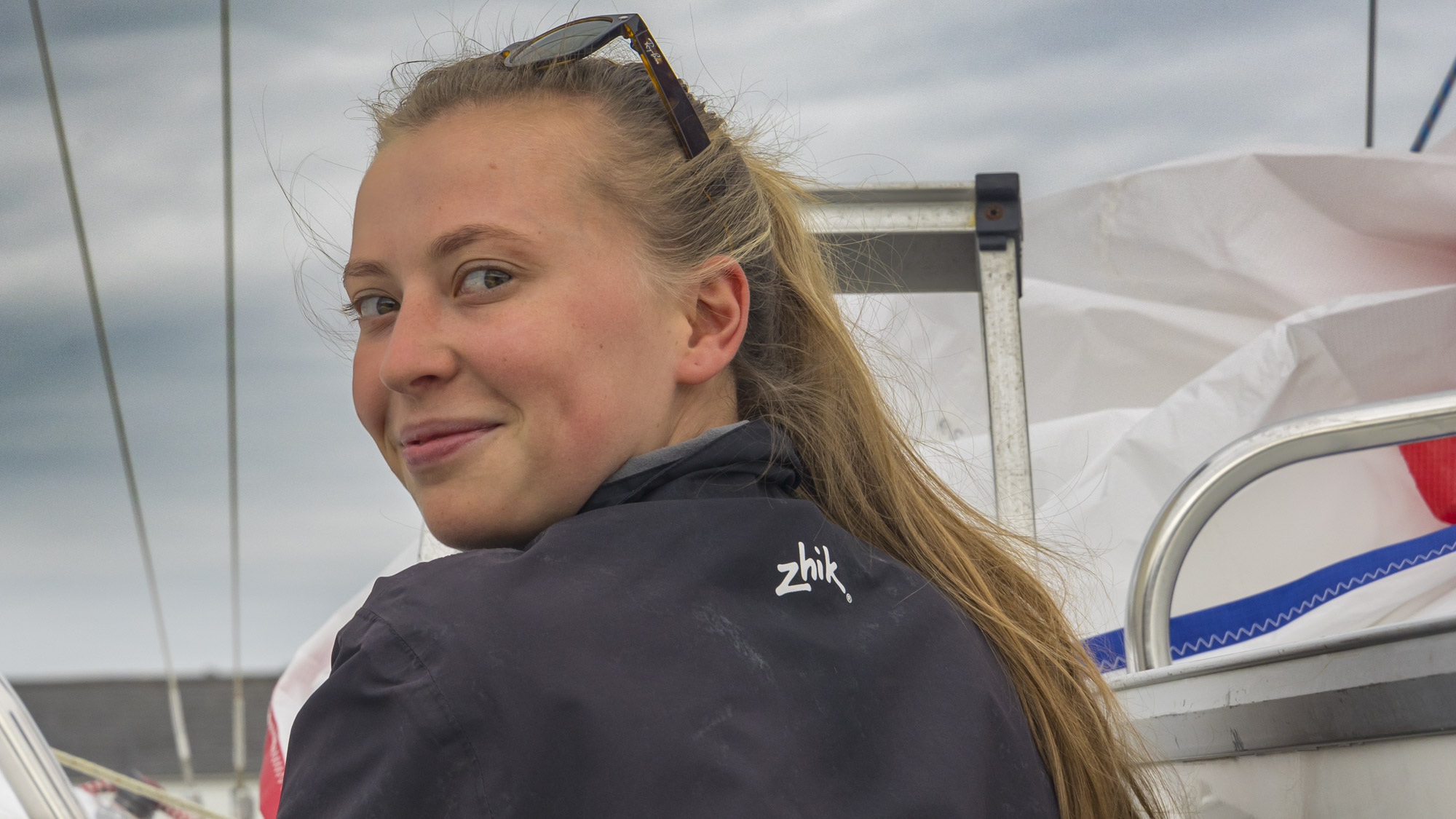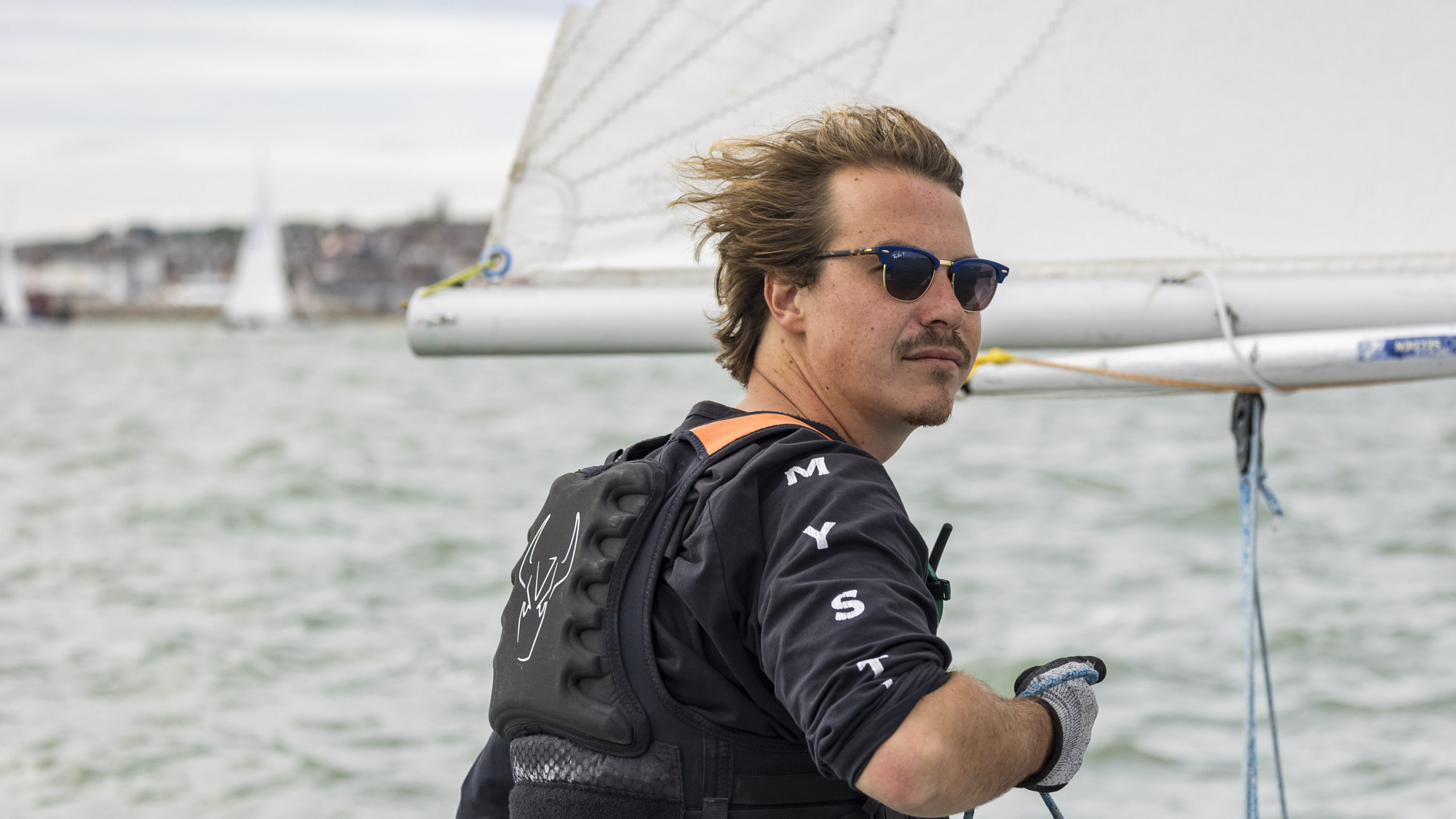Wendy lives with Cerebral Palsy and a learning disability, has been sailing in one way or anywhere for eight years. She started out with Cowes Sailability who did a great job introducing her to the basics, but this year she raced with the Andrew Cassell Foundation, at Cowes Week. When she started sailing she wasn’t sure what to expect, soon she was hungry to do and learn more than Sailability could offer and was introduced to Foundation. She says of joining @acfsailing. ‘I came over to see what they do and I enjoyed it straight away. I kept coming back because I wanted to improve my sailing and challenge myself’.
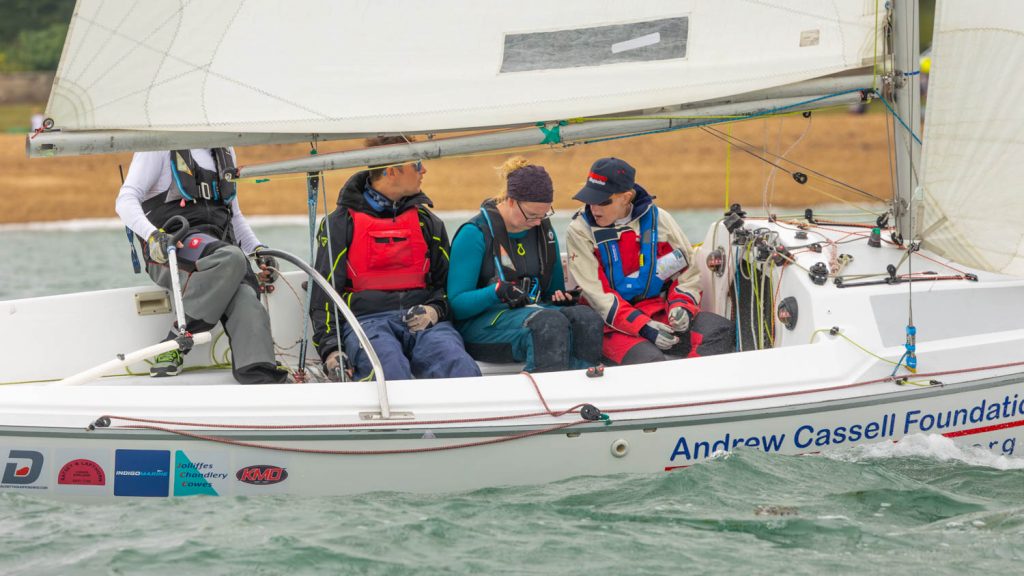
Learning the Whole Boat
With the Foundation’s support, Wendy began learning parts of sailing she’d never touched before: rigging the boat, hoisting sails, and managing controls beyond the helm. Her learning disability, and perhaps failures in education in the past, mean she doesn’t read well, so mostly learns by seeing and doing. What’s been amazing for her, and the team, is learning that Wendy can learn – and very efficiently – it’s just a different process to what is thought of as normal. She said: ‘I learned about the fine controls by asking people what each one does. They’ve always been happy to explain which is brilliant. Once I see it a few times I can do it.
The Foundation races and trains with Sonar Keelboats, the former Paralympic keelboat. She said: ‘It feels safe. At the beginning I definitely preferred it when it was calm: my cerebral palsy affects my balance, and it gets worse when I’m tired, but now after nearly a year, my balance has improved so much that I can get up onto the foredeck and fully participate in sailing the boat. That’s made a big difference to my life. The better balance and strength helps out in normal life too.”
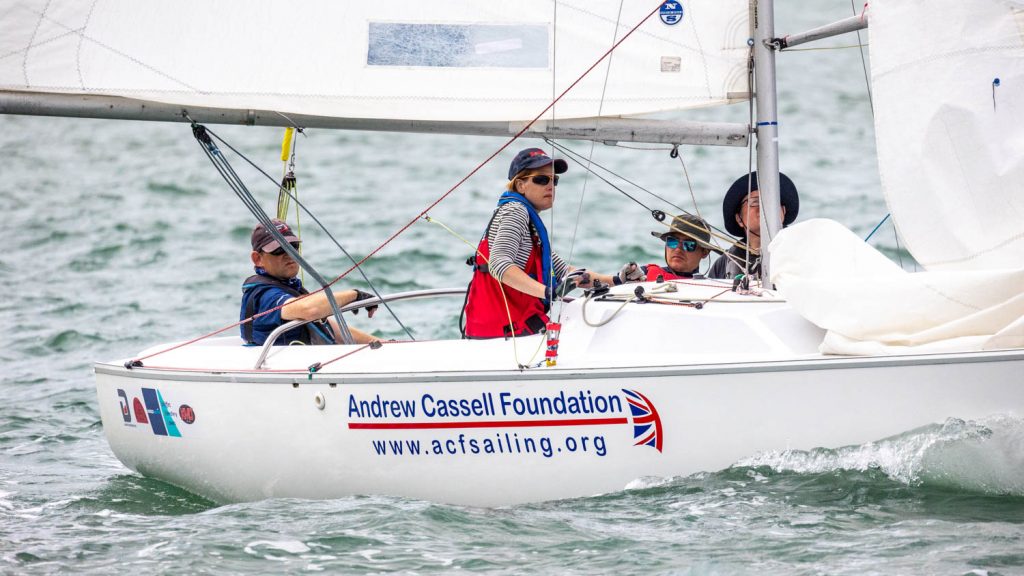
Strength can still be a challenge, especially in strong winds, but Wendy is determined to get stronger and be able to handle the jib sheets fully independently. “I particularly love when the kite’s flying — it just makes me happy. I want to learn how to handle the sheet and pole. Even if it’s not a position I play much, I’d like to try.”
A Place Where “You Can”
What Wendy values most about the Foundation is its attitude: ‘No one says you can’t do something. If you want to try, they’ll train you and see how it goes.’ Thinking about the way she learns, she said ‘Jon, a volunteer, has been brilliant at helping me learn to rig the boat. I’m still working on the knots, but I’m getting there. I found myself tying bowlines in Cowes Week without really thinking and that’s great progress. Mind you, I always get someone to check them! I’ve even started to get interested in the racing rules, thanks to the Foundation’s tabletop tactics with model boats.’
Independence and Belonging
Living with cerebral palsy and a learning disability means there are still frustrations, especially when she’s asked to do something exactly right. “It takes me a while to pick things up, and some people get frustrated with that. I think I’m improving, but you’d have to ask them!”
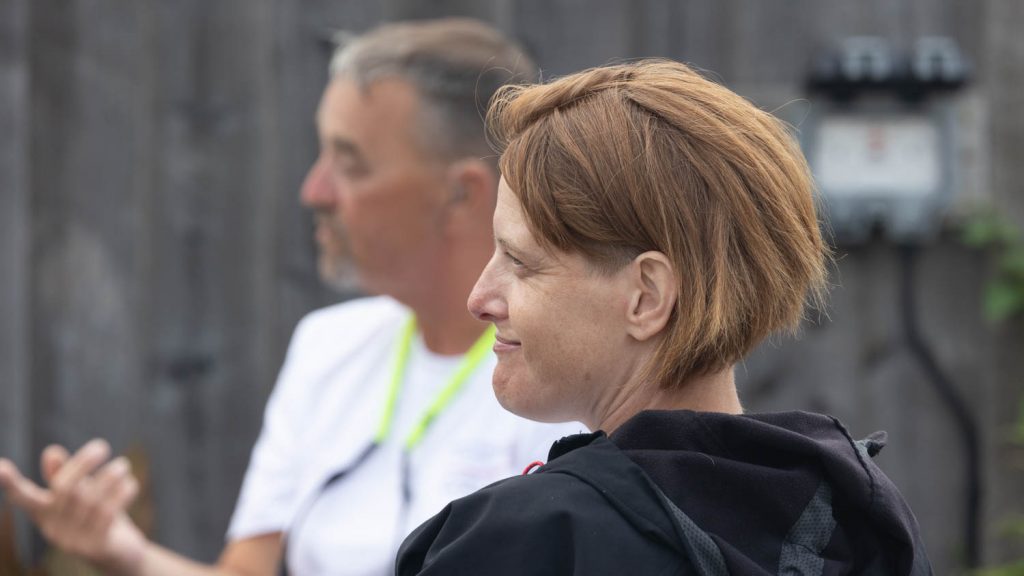
“Despite having Cerebral Palsy and some learning difficulties, her level of competence has grown hugely, she is a quick learner and keen to master new skills. As skipper I also really appreciate that she is constantly thinking ahead and always has the control lines coiled and ready for use rather than twisted around people’s feet in the boat. It sounds a small thing, but it makes a huge difference to the smooth running of the boat in testing racing conditions.
Wendy is proud of her independence. She can mostly travel routes she has learnt with support on her own – and that includes the route to the Foundation, so getting to sailing doesn’t always mean relying on others. The feeling of achieving is especially valuable because she struggled in mainstream education. She says that that made her feel stupid, but she’s realising through the Foundation that perhaps she could be more capable than she or anyone imagined. She says: ‘At the Foundation, no one has ever made me feel stupid. They’ve been helpful, understanding, and kind’.
Looking Ahead
Racing still holds some mysteries. “I find it hard to work out how you decide where to go on an upwind leg, and why we tack when we do. But when you get back in, you’ve achieved the race. It’s lovely to relax, chat, and hear how everyone else’s race went.” Wendy’s already planning for next year. “I want to improve my skills — especially handling the spinnaker pole, and launching and recovering the kite. I want to keep challenging myself.”
Originally from South Africa, Wendy, 36, moved to the UK in 2001 and settled on the Isle of Wight in 2006. Here, among new friends and fellow sailors, she’s found not only skills and challenges — but also a place where she belongs.

